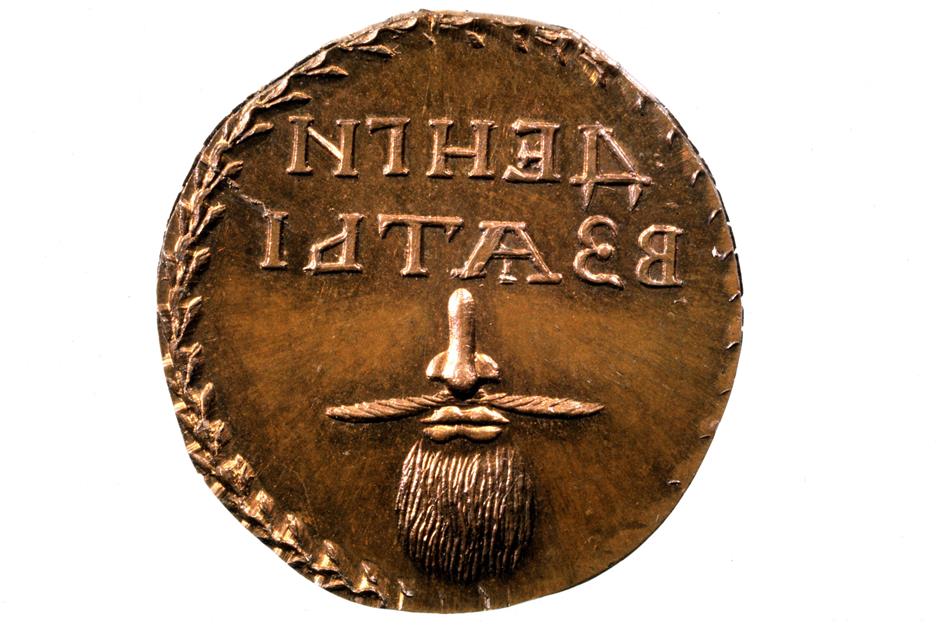Revealed: history’s strangest taxes
The strangest things people have paid tax on

Throughout history, governments around the world have tried to fill their coffers via unusual taxes, with everything from windows to beards and – believe it or not – cow flatulence at the centre of efforts to raise revenues.
Read on to discover 21 of the most creative and downright bizarre taxes of all time...
All dollar amounts in US dollars
Cooking oil (3,000-300 BC)

The pharaohs weren't shy about taking money from their citizens, and Ancient Egypt’s tax on cooking oil was among the first recorded. Tax collectors would even go door to door to check that citizens were not recycling old oil or using cheap alternatives to avoid the tax.
As the Egyptians at this time didn't have an official currency, the tax was collected from harvests and property.
Urine (1st century AD)

In Ancient Rome, human urine was highly valued – the ammonia it contained was used for tanning and laundering and, shockingly, brushing teeth.
Nero levied a tax on those collecting it from public urinals and Emperor Vespasian reintroduced it in around 70 AD. The tax led to the Latin saying "Pecunia non olet": "money does not stink".
Sponsored Content
All the single people (9 AD)

Single people have been punitively taxed for millennia. Roman emperor Augustus first introduced penalties on those who were celibate or had no children in 9 AD. Why? To encourage procreation and put a stop to any immoral behaviour.
The Ottoman Empire followed suit in the 15th century, and England also taxed childless widowers and bachelors in 1695. A childlessness tax of 6% was enforced in the USSR from 1941-1992, and, even today, the US state of Missouri taxes single men aged 21 to 50 $1 (75p) a year.
Skipping battle (12th-14th centuries)

A "cowards’ tax" was levied by the medieval King Henry I of England (pictured) that allowed knights to opt out of fighting wars by paying a so-called "scutage tax".
Later, King John levied it so often that it is said to have led to the creation of the Magna Carta of 1215, in a bid to limit the monarch’s power. Scutage also existed in France and Germany but became obsolete by the 14th century.
Salt (1350)

Another tax that led to huge change was the "gabelle" salt tax in France, so unpopular from its establishment in the mid-14th century that it was a contributing factor in the French Revolution.
Although it was repealed in 1790, Napoleon reinstated it just 16 years later, and it was only abolished in 1945 after the Second World War. The British also taxed salt, leading to Gandhi’s Salt March in 1930 to protest British rule in India.
Sponsored Content
Beards (1535-1772)

The Tudors of England first came up with the creative beard tax, with bearded King Henry VIII introducing a levy on facial hair in 1535. His youngest daughter, Elizabeth I, also levied a duty on whiskers.
But it was Peter the Great of Russia who took it a step further. In his bid to modernise the country, from 1698, anyone who wanted to stay hairy had to buy a coin imprinted with the words "the beard is a superfluous burden". The tax ended in 1772.
Playing cards (17th century)

King James of England and Scotland is said to have passed a law requiring the Ace of Spades in every pack of cards to carry its printing house’s insignia, to prove tax had been paid on its manufacture.
Forging an ace of spades was punishable by hanging, and the card is still known as the "death card". Stamp duty on playing cards was only abolished in 1960.
Fireplaces (1662)

The British have been creative with their taxes throughout history. The hearth tax was introduced by King Charles II’s parliament in 1662, following the Restoration of the monarchy. As the government sought to raise money, it was considered easier to count hearths than heads.
But with people simply covering their fireplaces with bricks to conceal them, the tax was repealed three decades later.
Sponsored Content
Windows (1696)

Another inventive but ultimately useless British tax was the window tax, the results of which can still be seen across the country today, with householders who could not afford to pay for all their windows simply bricking many up.
Houses with more than 10 windows had to pay a huge 10 shillings. The tax negatively impacted the health of the nation as unscrupulous landlords bricked up the windows in their tenants' houses, leading to damp and unlit conditions. After years of campaigning, the tax was repealed in 1851, but for some, that came 150 years too late.
Candles (1709)

The Georgian period in the UK was a time of prolific taxes. From 1709 to 1831, candles were taxed, and no one was allowed to make candles at home without a licence.
People started to use rush lighting, dipping rushes in animal fat before sparking them up at either end – hence the saying "burning the candle at both ends".
Soap (1711)

British politicians kicked up a real stink when they decided to tax soap, which was consequently regarded as a luxury item for decades.
The tax was scrapped in 1835 by Prime Minister William Gladstone, and people could finally afford to get clean.
Sponsored Content
Wallpaper (1712)

Another inventive Georgian tax, this levy on stained and coloured papers was avoided by pasting blank wallpaper on walls and then stencilling by hand.
Demand for wallpaper soared after the tax was abolished in 1836.
Bricks (1784)

As well as paying for their windows, Georgian Britons had to pay for the bricks to build their homes to help fund the wars in the American colonies.
Manufacturers quickly worked out that using bigger bricks reduced the tax, but the government introduced a maximum brick size and doubled taxes on larger bricks. The tax was abolished in 1850.
Hats (1784)

Desperate to pay off the war-ravaged national debt, Prime Minister William Pitt the Younger also introduced a tax on men’s hats to the UK in 1784, with each hat required to carry a revenue stamp pasted inside its lining.
There was a rising scale of taxes based on the cost of the hat, and anyone caught forging hat stamps could face the death penalty. The hat duty was abolished in 1811.
Sponsored Content
Wig powder (1795)

Pitt (appropriately the leader of the Whig Party) went on to tax wig powder, which was used to add colour, most commonly white or blueish-grey, and aroma to hairpieces.
But the wig-wearing trend was already on the wane. Some 47,000 paid the stamp duty of one guinea in 1812, but in 1855, fewer than 1,000 old-fashioned wig-wearers paid the tax. It was scrapped in 1869.
Clocks (1797)

Another year, another tax from Mr Pitt, this time for clocks and pocket watches: five shillings on every clock, 10 shillings for gold pocket watches, and two shillings and sixpence for all others, with annual licences required for makers and dealers.
It almost ruined the manufacture of clocks and watches, so unsurprisingly, the tax lasted just nine months.
Radio/TV (from 1923)

The UK was the first country to create a licence to fund radio in 1923 when an annual fee of 10 shillings was introduced to cover radio sets under the Wireless Telegraphy Act. This later extended to TV, with the BBC licence fee launching in 1946.
It still exists today and generates around $5 billion (£3.7bn) a year. Two-thirds of countries in Europe and half of countries in Asia and Africa also use licences to fund public TV, although the US and Canada have never pursued this path.
Sponsored Content
Shadows (1993)

In 2017, Conegliano, a town in Italy’s Veneto region, began to apply a little-known 1993 nationwide law to claw in €100 ($114/£86) a year from shopkeepers whose signs created shade on public walkways.
Another tax also hits Italian store owners whose awnings create shade or who put tables or chairs outside their shops.
Cow flatulence (2003)

Widely reported, the "cow fart tax" was mostly hot air. The tax on farmers, which aimed to reduce greenhouse gas emissions caused by cows’ excessive methane production, was first moo-ted in New Zealand in 2003, then in Denmark.
At the time the plans were scrapped. However, Denmark has since revived the proposals and the tax is scheduled to come into force in 2030.
Chopsticks (2006)

The Chinese government introduced a 5% tax on disposable wooden chopsticks 18 years ago in a bid to stop its forests from being rapidly cut down.
At the time, the country produced some 45 billion pairs a year.
Sponsored Content
Sliced bagels (2010)

Buy a whole bagel in New York and you won’t pay tax on it. But the minute you heat it, eat it in store, add a topping, or even just have it sliced, it is considered “altered” and an 8% sales tax is added.
In fact, even if the bagel is untouched, but you eat it in-store, it will also be taxed. The finer details of the sales tax were applied to bagels in 2010 when tax collectors were eyeing new ways to collect funds.
Now discover the famous brands that have different names around the world
Comments
Be the first to comment
Do you want to comment on this article? You need to be signed in for this feature